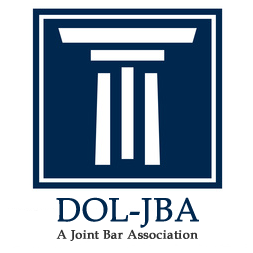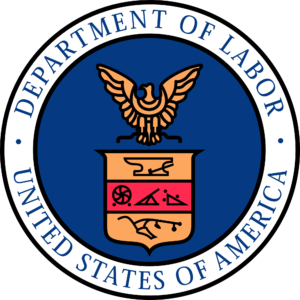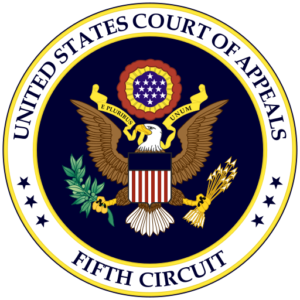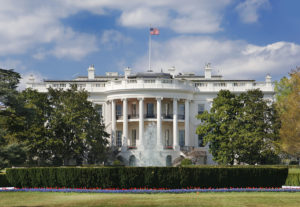In 2023, I have the pleasure of serving as the President of the Department of Labor – Joint Bar Association, or DOL-JBA. It is a honor. The DOL-JBA is a national non-profit organization filled with claimant and defense attorneys committed to improving the legal process in (primarily) Longshore and Defense Base Act claims. In my opinion, the DOL-JBA is more than that. It is an avenue to finding a middle ground regarding common issues affecting the industry. The lawyers meet with individuals from the Office of Workers’ Compensation Programs and the Office of Administrative Law Judges to explore efficient resolutions to these issues. Sometimes, resolution is possible. But not always–not on all issues. Still, resolution of even one issue fuels agency and judicial efficiency. And that is one of the DOL-JBA’s main objective: To promote and improve the efficient handling of claims and cases administered or adjudicated by theRead more
Viewing Pain on a Spectrum for Longshore (and DBA) “Disability”
The Ninth Circuit just issued a primer on pain as a disabling Longshore and Defense Base Act consideration. The case is Jordan v. SSA Terminals, LLC. I anticipate that this published decision will be cited in many legal briefs for a long time to come. Factual Background: In Jordan, the claimant significantly injured his back in 2014. He received conservative treatment and then, in 2018, a spinal fusion surgery. In the time between the injury and the surgery, the Longshore and Harbor Workers’ Compensation Act’s insurance company conducted surveillance. The videos from the surveillance, which were recorded in 2015 and 2016, showed the claimant engaging in various physical activities. A formal hearing was held to determine whether the claimant was “disabled” between 2016 and 2018. The Ninth Circuit focused on a few statements the claimant made at the hearing about his pain level. The claimant testified that he could perform tasks. But whenRead more
Major Change at OWCP: DFEC and DLHWC Merged!
Breaking news affecting all Defense Base Act claimants, employers, and carriers! The Office of Workers Compensation Programs merged the divisions that administer the Federal Employees Compensation Act, the Longshore and Harbor Workers’ Compensation Act, and the Defense Base Act. The news came in an e-mail from Director Rios. Notice from Antonio Rios: Here is Director Rios’ e-mail in full: Longshore Stakeholders, I am pleased to announce that the Office of Workers’ Compensation Programs (OWCP) is merging the Division of Longshore and Harbor Workers’ Compensation (DLHWC) with the Division of Federal Employees’ Compensation (DFEC). The two divisions will be consolidated into the Division of Federal Employees’, Longshore and Harbor Workers’ Compensation (DFELHWC), which I am excited and honored to lead as Director. The new organizational structure will allow OWCP to carry out its mission more efficiently and effectively. This merger will not change any processes, addresses, or points of contactRead more
OALJ Extended Suspension on In-Person Hearings Because of COVID-19
The Office of Administrative Law Judges extended the suspension of in-person hearings through at least July 24, 2020. Safety required the extension. The Coronavirus Disease of 2019 (COVID-19) still requires minimal staffing at OALJ offices, and less travel by the Longshore and Defense Base Act community. Many of the guidelines in the earlier Administrative Order and Notice dated March 19, 2020, are still in place. The new Supplemental Administrative Order and Notice dated April 10, 2020, changed a few aspects of the earlier order. For example: In-person hearings will not take place before July 27, 2020, at the earliest. OALJ will start hearing cases telephonically, by video, or by other remote means after May 15. Procedural deadlines are further tolled until at least June 1, 2020. In-person mediation and settlement judge conferences will not resume until at least July 27, 2020. The parties may agree to participate via telephone, depending onRead more
Mostly Coronavirus-Related Policy Updates from OALJ and the DLHWC
Here are a few updates from the Office of Administrative Law Judges and the Division of Longshore and Harbor Workers’ Compensation. Most, but not all, are related to COVID-19. Office of Administrative Law Judges–Subpoenas: First and foremost, keep in mind that the OALJ is running on a skeleton crew. Therefore, some requests might be overly burdensome at the present time. Case in point: routine subpoenas. The OALJ has twice posted to its website about requesting subpoenas. The most recent post states: Because OALJ offices are minimally staffed at present, parties should refrain from requesting subpoenas at least until April 24, 2020 unless they can explain the compelling circumstances. Even with compelling circumstances, OALJ cannot guarantee timely processing. This applies both to cases currently pending before OALJ and to longshore (and longshore extension) cases pending before OWCP. My read on this paragraph is that litigants should simply refrain from requesting subpoenasRead more
Fifth Circuit Addresses Longshore Situs and Status in New Opinion
Last week, the Fifth Circuit issued an important Longshore Act opinion. The court addressed “situs” and “status,” two very important factors in all Longshore or LHWCA claims. The opinion is MMR Constructors, Inc. v. Director, OWCP. Factual and Procedural Background: Henry Flores worked for MMR Constructors as a technician for electrical systems. He injury occurred while assisting with “electrical wiring for the construction of Chevron’s tension-leg platform named Big Foot.” At the time of Mr. Flores’ accident, the platform which would ultimately become the Big Foot was floating on pontoons in Corpus Christi Bay. Steel cables and utility lines connected the platform to land. Initially, the Office of Administrative Law Judges denied benefits. The Benefits Review Board overturned that order. MMR Constructors ultimately appealed to the Fifth Circuit, which affirmed. Injury on Navigable Waters – Situs: First, the Fifth Circuit addressed the “situs” test. The “extent to which a craft orRead more
International-Matex: 5th Circuit Addresses Situs, Status, MMI, and SAE
Recently, the Fifth Circuit published an important Longshore and Harbor Workers’ Compensation Act decision: International-Matex Tank Terminals v. Director, OWCP. The issues included maritime situs, maritime status, the concept of maximum medical improvement, and the claimant’s efforts to locate suitable alternative employment. Maritime Situs: The Longshore Act applies to claimants injured “on a maritime situs.” That means an injury must have “occurr[ed] upon the navigable waters of the United States (including any adjoining pier, wharf, dry dock, terminal, building way, marine railway, or other adjoining area customarily used by an employer in loading, unloading, repairing dismantling, or building a vessel.” See 33 U.S.C. 903(a). “Situs” has both a geographical and a functional component. The geographical component asks whether the area of injury “adjoined” navigable waters. “Adjoining” means “border on” or “be contiguous with” navigable waters. The functional component asks whether the area of injury is either included expressly in the list of possible injuries in 33Read more
Upgraded OALJ Search Engine for Longshore/DBA Claims
Public Service Announcement: the Office of Administrative Law Judges (“OALJ”) recently implemented a new and improved search engine for its website. It is very helpful. The search engine allows users to narrow down search results based on a number of different filters. For example, the Keyword Search option has the following filters: Agencies and Courts. Document Category, including “Decision-related documents.” Program Area. Select Longshore for claims falling under the Longshore and Harbor Workers’ Compensation Act and the Defense Base Act. Although there is a filter called, “DBA, SCA, and Related,” the DBA referred to in that quotation is the Davis Bacon Act, not the Defense Base Act. Case Type. Select “LHC” for Longshore claims and “LDA” for Defense Base Act claims. OALJ Document Type. This is an interesting filter because of the number of sub-filters that a searcher may select. There are Orders, Attorney Fee Decisions, Motions for Reconsideration/ModificationRead more
Ninth Circuit Issues Longshore Decision Protecting Injured and Disabled Retirees
The Ninth Circuit issued an important opinion abut the availability of Longshore disability benefits for a retiree. This published opinion, issued in Christie v. Georgia-Pacific Co., follows a Fourth Circuit opinion on January 3, 2018, which also addressed retiree benefits. From coast to coast, the federal appellate courts have issued decisions which protect retirees. Brief Summary of Christie: The Summary of the Christie decision succinctly explains the Ninth Circuit’s reasoning: The panel interpreted the language of 33 U.S.C. § 902(10) defining “disability,” and held that claimant’s decision to retire early did not prevent him from receiving permanent total disability benefits. The panel further held that substantial evidence in the record supported the administrative law judge’s findings that claimant was disabled with the meaning of the Act: he achieved maximum medical improvement, he could no longer return to his previous employment, and the employer failed to establish that suitable alternative employment existed. The panel noted thatRead more
New Executive Order Affects Hiring of Federal ALJs (including DOL ALJs)
On July 10, 2018, President Donald Trump signed an executive order that affects the criteria for hiring federal administrative law judges (“ALJs”). This is particularly important for Longshore and Defense Base Act claims because those claims are adjudicated by ALJs. The order, titled Executive Order Excepting Administrative Law Judges from the Competitive Service, states in full: By the authority vested in me as President by the Constitution and the laws of the United States of America, including sections 3301 and 3302 of title 5, United States Code, it is hereby ordered as follows: Section 1. Policy. The Federal Government benefits from a professional cadre of administrative law judges (ALJs) appointed under section 3105 of title 5, United States Code, who are impartial and committed to the rule of law. As illustrated by the Supreme Court’s recent decision in Lucia v. Securities and Exchange Commission, No. 17-130 (June 21, 2018), ALJs are often called upon to discharge significant duties and exercise significant discretion in conductingRead more
- 1
- 2
- 3
- …
- 20
- Next Page »










